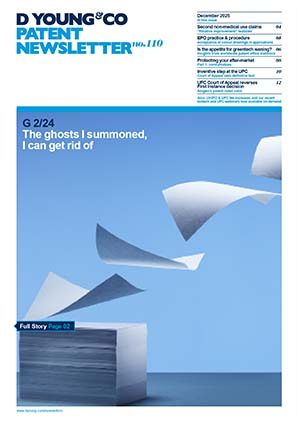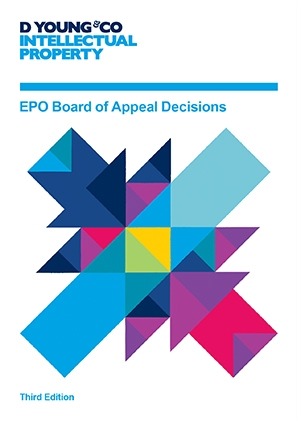Philips v ASUS: ASUS compelled to participate in FRAND trial
In Philips v ASUS, ASUS has been compelled to participate in a FRAND trial, despite declining a FRAND licence.
Background
In Unwired Planet v Huawei (which is subject to an appeal to the Supreme Court), the English Patents Court held that, if a patentee’s UK patent in a portfolio is held to be valid, essential and infringed, the court will determine the terms of a FRAND licence. This FRAND licence is likely to be a global portfolio licence. If the implementer does not take the FRAND licence, it is likely to be injuncted in the United Kingdom.
Following this decision, a number of implementers have, at different stages in the proceedings, elected to forego a FRAND licence and be injuncted in the United Kingdom. This is often with a view to avoiding a public determination of a FRAND licence.
Dispute
In Philips v ASUS, Philips brought a claim for infringement of its standard essential patents against both ASUS and HTE. It asserted three patents, which were the subject of two trials and three judgments. Two of the three patents were found to be valid, essential and infringed. The judgments were upheld on appeal. It followed that there would be a FRAND trial so the court could determine the terms of a FRAND licence.
ASUS’ position
ASUS decided that its market share within the UK of the products requiring a licence was not worth developing. It therefore declined a FRAND licence and consented to be injuncted in the UK. It subsequently applied to be exempted from the FRAND trial, arguing that to participate would be unnecessary and would result in wasted time and costs. ASUS relied on the decision in TQ Delta v. ZyXEL. Here the Court of Appeal held that:
“40 I accept that it may not be open to ZyXEL selectively to claim the right to be granted a RAND licence. If the licence is a unitary, portfolio, worldwide, group to group licence, it is arguable that ZyXEL must take it as a whole or not at all. They cannot claim it for the UK only, or for certain patents or for certain companies in the group. That follows from the proposition that it is arguable that the RAND licence is a unitary, worldwide licence, and ZyXEL have no right to a country-by-country, company-by- company licence because such a licence is not RAND.
41 It does not follow from the above that ZyXEL are somehow prevented from saying to [TQ Delta] and the court that they no longer rely on any licence to which it is entitled to resist the grant of relief for infringement of the UK patents. That is what the waiver does, however. It waives any and all rights ZyXEL might have to seek to enforce [TQ Delta's] RAND obligation to licence [its Standard Essential Patents] in the United Kingdom. I can see no basis whatsoever for saying that such a waiver should be treated as ineffective or invalid. To say the waiver is ineffective is equivalent to saying that the proceedings must go on as if ZyXEL were relying on the RAND undertaking to resist the grant of the injunction in the UK, when ZyXEL are prepared to give an irrevocable undertaking not to do so.”
A notable point of distinction between ASUS’ position and that of ZyXEL was that the latter agreed to pay the full amount of past damages which TQ Delta claimed.
Philips’ position
Philips objected. It asserted that the issue between the parties was how past damages were to be calculated. ASUS said that they should be calculated by multiplying a global FRAND royalty rate (US$0.75) by the number of devices sold in the UK. Philips countered that damages should be calculated by multiplying a global FRAND royalty rate by the number of devices sold globally during the relevant period. In any event, it differed on what that global FRAND royalty rate would be. Philips asserted that both issues would need to be determined at the FRAND trial.
Decision
Mr Justice Marcus Smith held that the correct forum to resolve the dispute was the FRAND trial, and therefore ASUS was compelled to participate. In doing so, however, he emphasised that the court should tread carefully in relation to Philips’ proposed measure of damages (a global FRAND licence applied to all relevant goods sold, irrespective of jurisdiction).
Reasons
Ultimately, the court concluded that there was a factual dispute between the parties as to the appropriate measure of damages. As the FRAND trial was to proceed in any event (against HTE) and the facts to that FRAND trial were relevant to the factual dispute, it followed that the most efficacious way of conducting proceedings was for ASUS to participate in the FRAND trial.
However, it did not follow that the FRAND licence declared by the court (referred to as the Declared Licence) was the correct measure of damages in relation to ASUS. Mr Justice Smith referred to the basis on which damages should be assessed, namely the compensatory principle. This is intended to place the patentee in the position it would have been in had the infringement not been committed. The judge noted that where the patentee licences the patent, a useful measure of the damages to be awarded is the “... amount actually charged or – failing that – the amount the court considers could reasonably be charged for the licence.” (Judge’s emphasis.) He described the latter approach as the “Counterfactual Licence”.
He concluded that:
“In short ... an English court ought to tread extremely warily when seeking to translate the terms of the Declared Licence into the Counterfactual Licence used for the purpose of calculating the tortious measure of damages that would be payable in precisely that case where the defendant implementer does not want the Declared Licence. To my mind – and, again, I say this extremely conscious that I have heard no evidence on the point whatsoever – the measure of damages proposed by Philips appears to be too high.“
He went on to say that:
“That is not to say that the terms of the Declared Licence are irrelevant. To the contrary, it would equally be wrong to disregard the terms the Declared Licence when quantifying a [patentee’s] loss in relation to a past infringement of its patents. In short, the extent to which the terms of the Declared Licence inform the assessment of damages is a question of fact. Whilst I consider a measure based upon an automatic linkage between the Declared Licence and the Counterfactual Licence to be unarguable, it may be that in this specific case either the measure proposed by ASUS or the measure proposed by Philips is the appropriate one, or it may be that the true measure lies somewhere in-between.”
See: Koninklijke Philips NV v Asustek Computer Incorporation & Ors [2020] EWHC 29 (Ch).

